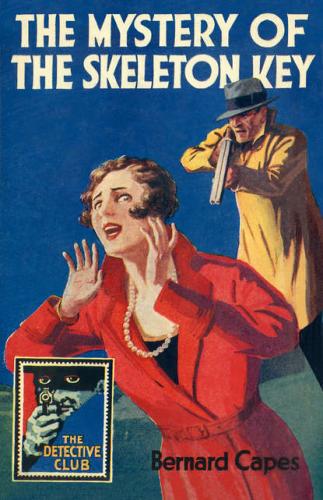‘Well, they suit me,’ answered Sir Calvin, ‘because I understand them. Red’s red and blue’s blue to me, and if any artist tells me they are not, I’ve nothing to answer the fellow but that he’s a damned liar.’
Le Sage laughed—‘What is the colour of a black eye, then?’—and they settled down to their game. The General was a good player; all the best of his mental qualifications—which were otherwise of the standard common among retired officers of an over-bearing, obstinate, and undiscerning disposition—were displayed in his astute engineering of his small forces. He was a tactical Napoleon in miniature when it came to chess; he seemed to acquire then a reason and a dignity inconspicuous in his dealings with living people. The chess-men could not misrepresent him; their movements were his movements, and their successes or failures his. If he lost, he had no one but himself he could possibly blame, and his understanding of that condition seemed to bring out the best in him. He was never choleric over the fortunes of the game. For the rest, he was not a wise man, or an amenable man, or anything but a typical despot of his class, having an inordinate pride of family, which owed less than it should have to any moral credit he had brought it in the past. In person he was a leanish, clean-built soldier of fifty-five, with bullying eyebrows and a thick blunt moustache of a grizzled blonde.
He and the Baron were very fond of devising problems, which they would send up for solution to the Morning Post. They set to elaborating a tough one now, a very difficult changed-mate two-mover, which kept them absorbed and occupied over the board for a considerable time. Indeed, a full hour and a half had passed before they had settled it to their satisfaction; and then the Baron, taking a refreshing pinch of Macuba, rose to his feet.
‘That is it, my friend,’ said he; ‘an economical B.P. at K. Knight 4, and the thing is done.’
The clock on the mantelpiece chimed a quarter past four as he spoke, and on the tinkling reverberation of its one stroke someone opened the door. It was Hugo Kennett: the young man’s face was ghastly; his hands shook; he came into the room hurriedly, as if overweighted with some dreadful piece of intelligence.
‘Good God, Hughie!’ exclaimed his father, and rose, staring at the boy, his eternal cigarette caught between his teeth.
The young soldier made an effort to speak; his breath fluttered audibly in him like the leaf of a ventilator; his nerve seemed for the moment gone utterly beyond his control.
‘Steady, sir!’ commanded the General; and his masterful tone had its visible effect. ‘Now,’ he said, after a rallying pause. ‘What is it?’
Конец ознакомительного фрагмента.
Текст предоставлен ООО «ЛитРес».
Прочитайте эту книгу целиком, купив полную легальную версию на ЛитРес.
Безопасно оплатить книгу можно банковской картой Visa, MasterCard, Maestro, со счета мобильного телефона, с платежного терминала, в салоне МТС или Связной, через PayPal, WebMoney, Яндекс.Деньги, QIWI Кошелек, бонусными картами или другим удобным Вам способом.
